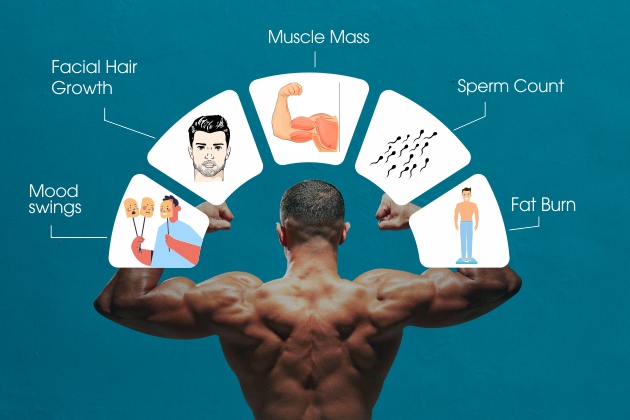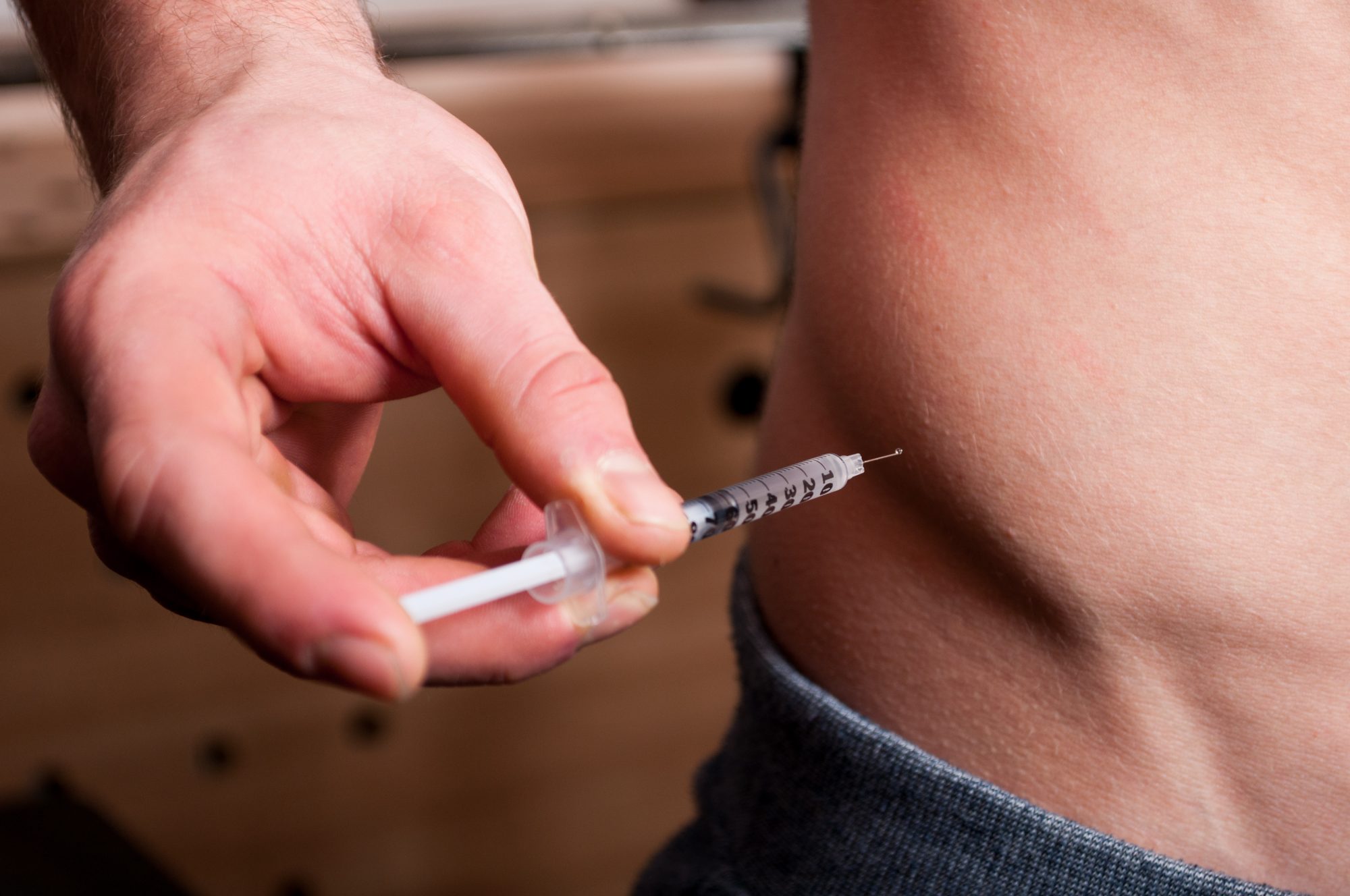While testosterone is crucial for reproductive success, introducing it from outside the body can sometimes have the opposite effect. This might seem counterintuitive—after all, low testosterone levels can lead to problems with libido and sperm production.
Testosterone replacement therapy (TRT) can be transformative, often considered the best treatment for low testosterone. TRT can significantly enhance mood, energy, and libido, helping you feel like yourself again. Given these benefits, it’s no surprise that androgen prescriptions increased fourfold between 2003 and 2013.
However, the relationship between testosterone and fertility is more complex than it appears, particularly regarding testosterone supplementation and therapy. Keep reading to explore the role of this hormone, why people use testosterone, and how its use can impact fertility.
What is Testosterone?
Testosterone is a key reproductive hormone primarily produced by the male body. While women also produce testosterone in their ovaries, the levels are significantly lower. In men, testosterone is produced by the testes and the adrenal cortex. This crucial sex hormone is involved in numerous processes within the male body, including:
- The development of reproductive organs before birth
- The growth of pubic hair, deepening of the voice, and increased growth during puberty
- Enhancing libido and sex drive
- Maintaining muscle mass and strength throughout life
- Aiding in sperm production for reproduction

Additionally, although not fully understood, testosterone is believed to influence cognition, energy levels, and mood. Men with low testosterone often experience emotional distress, such as depression, as well as reduced energy, motivation, and mental clarity.
Recommended: Does Blue Cross Blue Shield Cover Testosterone Treatment?
The effects of low testosterone vary depending on the age at which it occurs. For instance, low testosterone during puberty can hinder the development of facial hair and the growth of the penis and body. In adult men, low testosterone can lead to reduced muscle mass, diminished libido, and potentially contribute to hair loss.
Understanding the multifaceted role of testosterone throughout a man’s life highlights the significant impact that hormonal imbalances can have on overall health and well-being.
Testosterone and Fertility
Naturally occurring testosterone is undeniably crucial for a man’s fertility. This primary sex hormone influences everything from sexual desire to the production of healthy sperm necessary for fertilization. However, supplementing with testosterone doesn’t necessarily enhance fertility. In fact, it often has the opposite effect.
Can Taking Testosterone Make You Sterile?
When you take testosterone, whether through prescription therapy for low levels or as a performance-enhancing booster, it alters your body’s natural testosterone production. According to Dr. Puneet Masson at Penn Medicine:
“If a man is taking any extra testosterone, it can basically shut off his body’s ability to make its own testosterone—and the body’s ability to make its own sperm.”
Testosterone therapy is known to reduce sperm production, but excessive testosterone can exacerbate infertility issues. This poses a risk for men using over-the-counter testosterone boosters who might not have low testosterone. If these supplements elevate testosterone levels too much, the body may struggle to produce quality sperm.
Recommended: What Causes Erectile Dysfunction in Your 50s?
Although a lower sperm count doesn’t always lead to infertility, the lower it gets, the harder it becomes for you and your partner to conceive. Some men even reach a sperm count of zero while on testosterone. For most, this infertility is temporary, and sperm counts return to normal once the treatment is discontinued. However, some men never regain their sperm count after stopping TRT.
Another reason testosterone supplementation can affect fertility is that it may interfere with follicle-stimulating hormone (FSH) levels, which are essential for sperm production. In fact, testosterone has been studied for its potential use as a male contraceptive for this very reason.

For hypogonadal men who do not plan to have biological children in the future, TRT might be the best solution for alleviating low testosterone symptoms. But if fertility is a concern, you need to carefully weigh the risks of TRT before starting any testosterone supplementation.
Recommended: Can Boric Acid Kill Sperm?
Understanding these effects is crucial for men considering testosterone therapy or supplements, particularly if fertility is a concern.
Reasons Why People Take Testosterone
While the body naturally produces testosterone, many men commonly use supplemental testosterone. Doctors may prescribe it for conditions like male hypogonadism (low testosterone) or for masculinizing hormone therapy. However, a significant number of men use testosterone even when it’s not medically necessary, often for performance enhancement or muscle building. Here’s a closer look at the common reasons why people take testosterone:
1. Low Testosterone Levels
The most common reason men are prescribed testosterone is due to low testosterone levels. This condition can result from various factors, including testicular injury, certain metabolic disorders, pituitary gland dysfunction, and the use of specific medications. However, the most prevalent cause of declining testosterone levels is aging.
Natural testosterone decline typically begins around the age of 30, with most men losing about one percent per year throughout their lives. Consequently, the majority of men prescribed testosterone for low levels are 50 years or older.
Recommended: Does Family Planning Affect Future Pregnancy?
When testosterone levels drop too low, it can lead to numerous issues, including low libido, fatigue, depression, and erectile dysfunction. Men with low testosterone may experience sexual difficulties that impact fertility and may also suffer from impaired sperm production.
2. Masculinizing hormone therapy
A relatively modern application of testosterone therapy is for masculinization in female-to-male transitioning to align with gender identity. Ideally, masculinizing hormone therapy begins during puberty to suppress the development of secondary sexual characteristics such as menstruation and breast growth. However, transgender men can also start this form of testosterone therapy later in life.
3. Performance Enhancement
Testosterone’s ability to enhance muscle growth and strength makes it appealing for those seeking performance improvements. Over-the-counter testosterone supplements can help boost natural testosterone levels and may be safe when used responsibly under a doctor’s guidance.
Unfortunately, many men do not consult their doctors before using these supplements, and not all products are well-tested. Even supplements from trusted sources can pose health risks if not used correctly.

Additionally, the illegal use of synthetic testosterone, commonly known as steroids, is a significant issue, particularly among athletes. These steroids are often sold on the black market, making them untested and unreliable. A study found that over 37 percent of black market steroids contained unlisted drugs, further increasing health risks.
Potential Risks of Taking Testosterone
While testosterone therapy can be effective for certain conditions, it does come with risks. Common side effects include:
- Skin irritation or acne
- Increased prostate-specific antigen (PSA) levels
- Elevated red blood cell counts
- Reduced testicle size
- Breast enlargement
- Decreased sperm count
Recommended: Top 4 Signs That a Man Has Not Been Sexually Active
Long-term use of testosterone therapy carries even more serious risks. Men on prolonged testosterone replacement therapy may face a higher risk of heart problems and potential stimulation of prostate cancer cell growth. However, these risks can be managed with regular medical supervision and periodic testing.
How to prepare for kids if you plan to take testosterone
If you plan to have children and are considering testosterone therapy for any reason, it is crucial to discuss the potential impact on fertility with your doctor. Many doctors advise postponing testosterone replacement therapy until after you have children.
If you are already undergoing testosterone therapy or using over-the-counter supplements, your doctor may recommend discontinuing the treatment. However, you should never abruptly stop prescribed testosterone therapy without consulting your doctor first.
Recommended: Can Sex Make You Constipated?
Remember, it can take several months for sperm production to rebound after stopping testosterone therapy, depending on the treatment duration. Older men or those who have been on testosterone therapy for extended periods may not fully recover sperm quality.
It is not uncommon for men who want to have children and need testosterone replacement therapy to preserve their sperm before starting treatment.
The Misuse of Testosterone as a Fertility Treatment
If the risks of testosterone replacement therapy (TRT) were widely acknowledged and openly discussed by both doctors and patients, this issue wouldn’t be as significant. Each man could then make an informed decision about whether the risks are acceptable.
However, many men are unaware that their testosterone medications could affect their fertility in both the short and long term. Even more concerning, some doctors still prescribe testosterone to treat infertility.

A survey of American Urological Association members revealed that 25% of respondents were prescribing TRT to infertile men actively seeking pregnancy. Similar international studies suggest that a significant number of practitioners incorrectly believe that testosterone therapy increases sperm count.
In some ways, this approach seems logical. Testosterone plays a role in the male reproductive system. So, if a man is found to be infertile, why not administer a treatment that is readily available?
Recommended: What Does an Invalid Pregnancy Test Mean?
However, it ultimately boils down to education. Doctors who prescribe TRT as a treatment for male infertility may not be fully aware of the potential consequences and may lack the necessary qualifications to administer such complex hormone treatments. Increasing education on the effects of exogenous testosterone on male fertility could help mitigate this unfortunate occurrence.
If you are struggling with infertility, whether naturally or due to previous testosterone treatment, it’s crucial to know that there are alternative therapies available to help you and your partner conceive. For example, research suggests that the high testosterone levels and resulting infertility associated with obesity can be reversed through changes in diet and lifestyle. Additionally, therapies such as GnRH hormones, estrogen receptor modulators, aromatase inhibitors, or beta hCG may help increase spermatogenesis.
FAQs
Is there a risk of permanent infertility from testosterone therapy?
While rare, prolonged or high-dose testosterone therapy can potentially lead to long-term infertility. However, most cases of infertility related to testosterone therapy are reversible once treatment is stopped and hormone levels normalize.
Are there ways to mitigate the impact of testosterone therapy on fertility?
Yes, consulting with a healthcare provider before starting testosterone therapy is essential. They can provide guidance on the appropriate dosage and duration of treatment to minimize the risk of infertility. Additionally, some men may choose to preserve their sperm through methods such as sperm banking before starting testosterone therapy.
How long does it take for fertility to return after stopping testosterone therapy?
The timeline for fertility to return after discontinuing testosterone therapy varies from person to person. In most cases, sperm production gradually resumes within a few months, but it may take longer for fertility to fully recover, particularly in cases of prolonged testosterone use.
Can testosterone therapy be used as a form of male contraception?
While testosterone therapy can lower sperm count, it is not a reliable form of contraception on its own. It is essential to use alternative methods of contraception if avoiding pregnancy is a concern while on testosterone therapy.
Conclusion
In conclusion, there is a significant connection between taking testosterone and its impact on fertility, even with over-the-counter supplements. If you plan to have biological children, it is crucial to consider how testosterone supplementation could affect your fertility before starting any treatment or self-medicating for performance enhancement.
While testosterone use does not guarantee complete infertility, it is a potential risk, particularly with long-term use. It is essential to discuss your fertility goals with your doctor before beginning any form of testosterone therapy.
